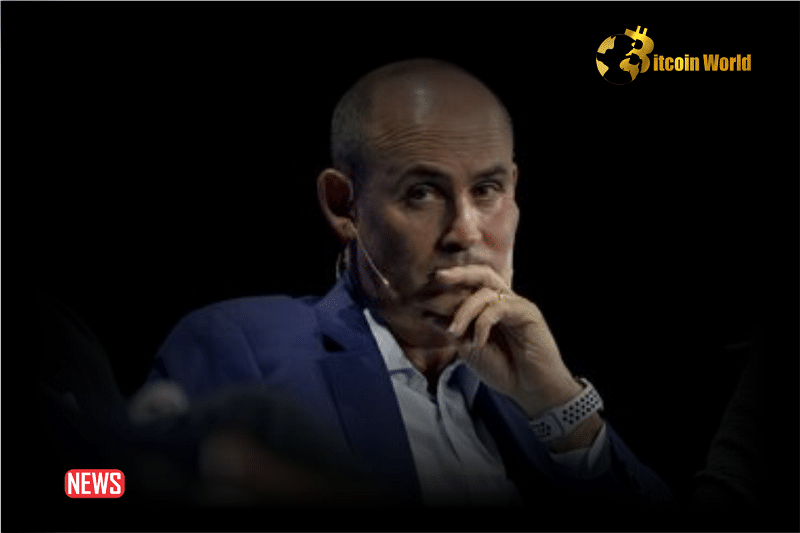Excitement around crypto ETFs reached fever pitch recently with the SEC finally greenlighting spot Bitcoin ETFs. But if you’re eagerly waiting for a Spot Ethereum ETF to follow suit, you might need to cool your heels. Leading investment bank TD Cowen has poured cold water on the hopes of a swift approval, suggesting the wait could be significantly longer than many anticipate. Let’s dive into why TD Cowen believes the SEC is in no rush to approve a Spot Ethereum ETF and what this means for the crypto market.
TD Cowen’s Prediction: Don’t Hold Your Breath for a Spot Ethereum ETF
According to a recent report from TD Cowen’s Washington Research Group, the SEC is expected to take a cautious and measured approach to approving any further crypto ETFs beyond Bitcoin. Here are the key takeaways from their analysis:
- Bitcoin ETFs First, Experience Later: TD Cowen believes the SEC wants to observe and understand the market dynamics and performance of the newly approved spot Bitcoin ETFs before even considering other crypto-based investment products. They want to gain real-world experience with Bitcoin ETPs.
- Longer Wait Than Expected: The research group, spearheaded by Jaret Seiberg, suggests that the SEC might take up to 26 months before giving the nod to a Spot Ethereum ETF. This is a considerable timeframe, pushing any potential approval well into the future.
- Post-Election Timeline: Adding to the delay, TD Cowen indicates that any approval for a Spot Ethereum ETF is more likely to occur after the upcoming US elections. This implies that political and regulatory landscapes could play a significant role in the SEC’s decision-making process.
In essence, TD Cowen’s message is clear: the SEC is unlikely to approve an Ethereum ETF anytime soon. This perspective comes from a reputable financial institution and carries weight within the investment community.
TD Cowen: It is unlikely for the SEC to approve an Ethereum ETF soon. The SEC wants to gain experience with Bitcoin ETPs before approving Ethereum or other crypto token ETPs. It may take up to 26 months before the SEC approves an Ethereum ETF. pic.twitter.com/hK9iLvqG9a
— Wu Blockchain (@WuBlockchain) January 14, 2024
Why the SEC’s Hesitation? Learning from Bitcoin Before Ethereum
The core of TD Cowen’s argument rests on the SEC’s desire to proceed cautiously. After years of resisting spot Bitcoin ETFs, the agency finally relented. However, this doesn’t signal an immediate open door for all crypto ETFs. Instead, it appears to be a strategic, phased approach. The SEC wants to:
- Assess Market Stability: Observe how Bitcoin ETFs impact the broader crypto market and traditional financial markets.
- Evaluate Regulatory Frameworks: Fine-tune regulatory frameworks based on the practical experience gained from Bitcoin ETFs.
- Investor Protection: Ensure investor protection mechanisms are robust and effective within the context of crypto ETPs.
By focusing on Bitcoin ETFs first, the SEC is essentially taking a learning-by-doing approach, mitigating potential risks before expanding to other cryptocurrencies like Ethereum.
Echoes of Doubt: JP Morgan’s Perspective on Ethereum ETF Approval
TD Cowen isn’t alone in its skepticism about a near-term Ethereum ETF approval. Financial giant JP Morgan also shares a similar outlook. Nikolaos Panigirtzoglou, a Managing Director at JP Morgan, has reportedly indicated that the SEC’s classification of Ethereum is a crucial hurdle.
For a spot Ethereum ETF to gain approval, JP Morgan believes the SEC would need to classify Ethereum as a commodity, just like Bitcoin. Currently, there’s uncertainty whether the SEC views Ethereum as a commodity or a security. If the SEC leans towards classifying Ethereum as a security, the approval pathway for a spot ETF becomes significantly more complex and potentially lengthy. Panigirtzoglou suggests that this commodity classification for Ethereum is unlikely to happen quickly, further dampening expectations for a May approval timeline, which is a key date for potential ETF decisions.
What Does This Mean for Ethereum and Crypto Investors?
The cautious stance from TD Cowen and JP Morgan suggests that the road to a Spot Ethereum ETF in the US might be a marathon, not a sprint. Here’s what investors should consider:
- Manage Expectations: Avoid expecting a swift approval of a Spot Ethereum ETF. The timeline is likely to be extended, possibly stretching into 2025 or beyond.
- Focus on Long-Term Growth: Ethereum’s fundamentals and technological advancements remain strong. Focus on the long-term potential of Ethereum and the broader crypto ecosystem, rather than solely relying on ETF approvals for price appreciation.
- Monitor Regulatory Developments: Stay informed about regulatory updates and pronouncements from the SEC regarding crypto assets. Any shift in the SEC’s stance on Ethereum’s classification or ETF approvals could significantly impact market sentiment.
- Explore Alternative Investment Options: Consider other avenues for Ethereum exposure, such as direct ETH holding, staking, or exploring Ethereum-related investment products in regions with more favorable regulatory environments.
See Also: Does The Approval Of The BTC Spot ETFs Make Bitcoin Centralized?
Conclusion: Patience is Key for Ethereum ETF Hopefuls
While the approval of spot Bitcoin ETFs was a landmark moment for the crypto industry, it appears the SEC is adopting a step-by-step approach. TD Cowen’s analysis, reinforced by JP Morgan’s perspective, indicates that a Spot Ethereum ETF approval is unlikely to be a near-term event. The SEC’s focus on gaining experience with Bitcoin ETFs before considering Ethereum or other crypto assets suggests a measured and deliberate regulatory process. For Ethereum enthusiasts and crypto investors, patience and a long-term perspective will be crucial as they await further developments in the evolving landscape of crypto ETFs.
Disclaimer: The information provided is not trading advice, Bitcoinworld.co.in holds no liability for any investments made based on the information provided on this page. We strongly recommend independent research and/or consultation with a qualified professional before making any investment decisions.


